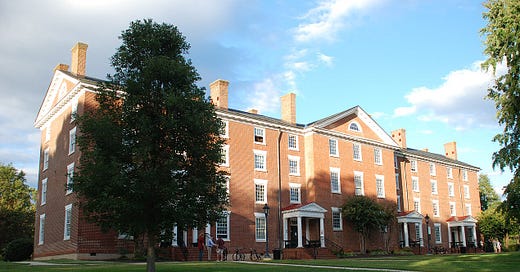In the first chapter of this college guide, I suggested you ask why you wanted to go to college. Then when you should start your higher education, in ch. 2.
As part of asking which college you wanted to attend, you probably paid some attention to one more question: where? We don’t go to college in the abstract, after all, but in particular locations: in …
Keep reading with a 7-day free trial
Subscribe to The Pietist Schoolman to keep reading this post and get 7 days of free access to the full post archives.



